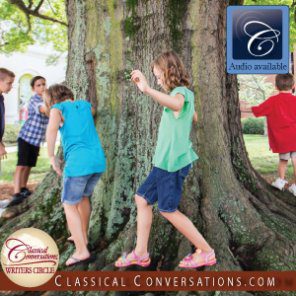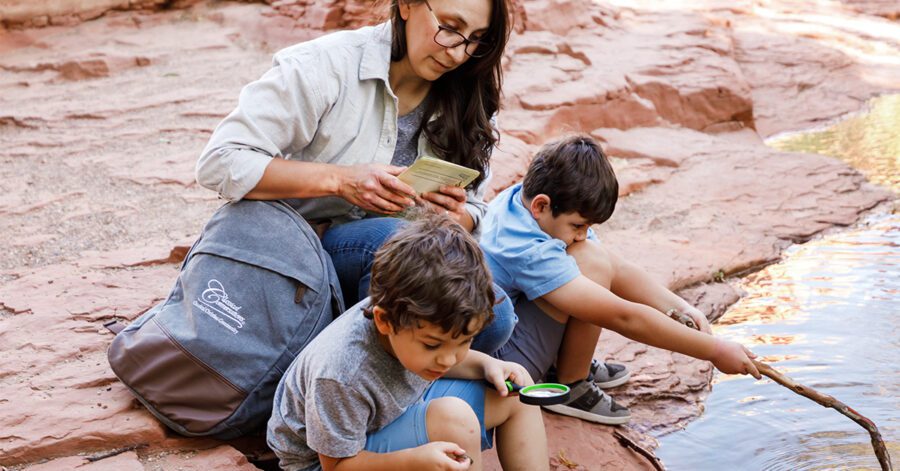Plutarch famously said, “The very spring and root of honesty and virtue lie in the felicity of lighting on good education.” Now we, as Christians, know that our faith is also essential, but this famous quote is not without merit. Throughout this speech I hope to explain how my educational experience has prepared me to lead a life of virtue and honesty.
I would like to begin by telling you a little bit about myself. My name is Emily Shirley and I began my journey with Classical Conversations at the age of five when I was enrolled in the Abecedarians class of a local Foundations community. I graduated Foundations and Essentials when I was twelve and immediately became involved in Challenge, Classical Conversations’ middle and high school program. This year I am completing my final year of Challenge, and I will be attending a liberal arts college this fall. During the past year, as I have anticipated graduating from Classical Conversations, I have spent a great deal of time reflecting on my education. Should I have done anything differently? Did Classical Conversations adequately prepare me for the situations I am going to face in college, in work, and in life?
My answer today is a confident yes for this reason: The Foundations and Challenge programs combine freedom, practicality, and preparation.
First, Challenge gives you freedom. No two students are alike, so it follows that students will not all learn the same things at the same rate. Some students might need fewer physics lessons assigned each week and some might be capable of completing more. For some students, memorizing eighty lines of Homer might not be feasible, but for others this might be light work. Challenge is designed to give you, the parent, freedom to decrease or increase your child’s workload as you see fit in order to ensure that your child maximizes their education.
Second, Challenge is the practical option that builds upon your investment in the Foundations and Essentials programs. The Foundations program was specifically designed to precede the Challenge program. Leigh Bortins began Classical Conversations with the Challenge program alone. After noticing that certain elements (grammar) were missing in her older children’s early education, she took a step back and created the Foundations program and then the Essentials program. Both programs were specifically tailored to prepare students (and their parents) for the Challenge program, which is the capstone program for cultivating a classical, Christian education. The memory pegs your children learn in Foundations will be put to extensive use in the Challenge program through lessons, activities, and conversations that build upon, relate to, and put in order what the students have committed to memory.
Third, Challenge prepares you for life, which presents a variety of situations inside and outside the classroom. In life, your children will be confronted with difficult questions, and despite your best efforts, you will not be able to teach them the answer to every one of these questions. Challenge cannot do this either (let’s face it, that would be way too much memory work), but it can do something else. Challenge can teach your student how to logically deduce the best answer to a question. It can also teach your student where to look if they cannot figure out the answer alone.
I will use a personal example to illustrate this point. Recently, I was interviewed for a college scholarship. A question was asked of me, one that I had never heard before: “If you could get rid of one state in the United States, which state would it be and why?” Now, this is not a question for which I could have prepared an answer ahead of time. I was completely reliant on the reasoning and thinking skills that the Challenge program had helped me develop. Immediately, I started thinking through the states. Which ones had the least political influence? Which ones would cause the least landmass loss? and so on and so forth. Because of the way I answered this question and a few others, I was selected out of 400 students as one of eight to receive an annual scholarship.
I say all of that to say this: The Challenge program is one of a kind. It combines rigorous education with insightful discussions in a supportive community. It prepares, nurtures, and grows your child like no other program. It also gives you opportunities to grow together as a family through discussions such as whether Hamlet should have avenged his father’s death, whether Achilles’ rage was justified, and whether Corrie ten Boom should have helped hide Jewish families.
This type of education is immeasurably valuable because, as Plato points out, “The direction in which education starts a man will determine his future life.” Because of my participation in Classical Conversations programs and the Challenge program in particular, I feel confident that my education will lead to a future that will move in a good direction, one that is rooted in virtue and honesty.




